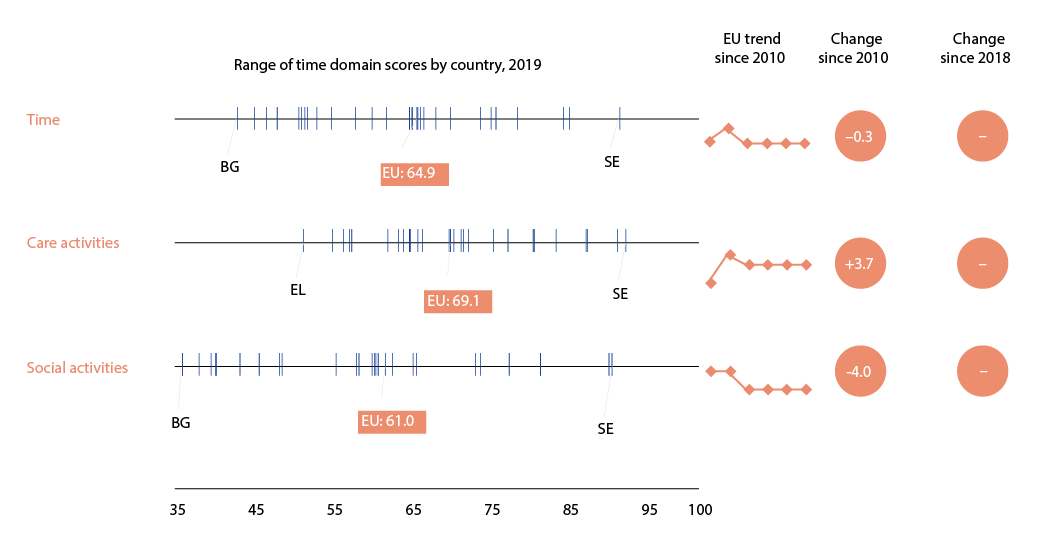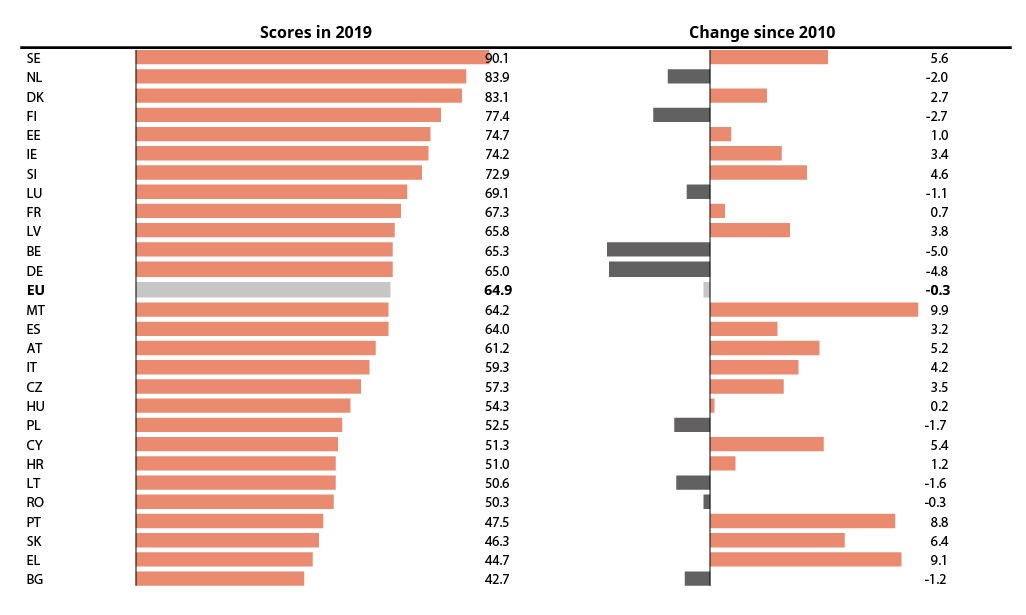Gender inequalities in use of time live on
The absence of updated data on time use has meant continued reliance on 2016 data. This has resulted in no change to the score for the domain of time[1] since the 2020 Index, and a negative longer-term rating for 2010–2019.
As shows, the EU score of 64.9 points for this domain masks a wide variation in national scores, which range from 42.7 points in Bulgaria to 90.1 points in Sweden. As a result, the time domain has the second broadest dispersion of country scores in the Gender Equality Index, after the domain of power. Gender inequality is higher in the social activities subdomain, with a score of 61 points in 2019, than in the care subdomain (69.1 points) (Figure 13).
Since 2010, the overall domain score has fallen by 0.3 points, the result of two opposing trends at the subdomain level over the same time frame: a rise of 3.7 points in the score for the care subdomain and a drop of 4 points in the score for the social activities subdomain. These trends are important to keep in mind as research has shown that participation in social activities contributes to one’s subjective well-being (Brajša-Žganec et al., 2011). Access to leisure time and activities, while essential for quality of life, is largely determined by time pressures from both paid and unpaid work (European Parliament, 2016a).
In 2019, the best-performing countries in the domain of time were Sweden, the Netherlands, Denmark, Finland and Estonia, in that order. Scores ranged from 90.1 points in Sweden to 74.7 points in Estonia. The worst-performing countries were Bulgaria, Greece, Slovakia, Portugal and Romania, in that order, with scores of 50 points or lower.
Figure 13. Scores for the domain of time and its subdomains (2019), and changes over time
Figure 14. Scores for the domain of time (2019) and changes since 2010, by EU Member State
Since 2010, nine Member States have seen their scores fall: Belgium, Bulgaria, Germany, Lithuania, Luxembourg, the Netherlands, Poland, Romania and Finland. Countries seeing the most regression are Belgium (– 5 points), Germany (– 4.8 points) and Finland (– 2.7 points). In most EU countries scores increased over the same time frame. Malta has seen a 9.9-point increase, and there have been increases in Greece (+ 9.1 points) and Portugal (+ 8.8 points). Estonia and Croatia have seen more modest improvements, with increases of 1.0 and 1.2 points, respectively. France (+ 0.7 points) and Hungary (+ 0.2 points) saw minimal change (Figure 14).

